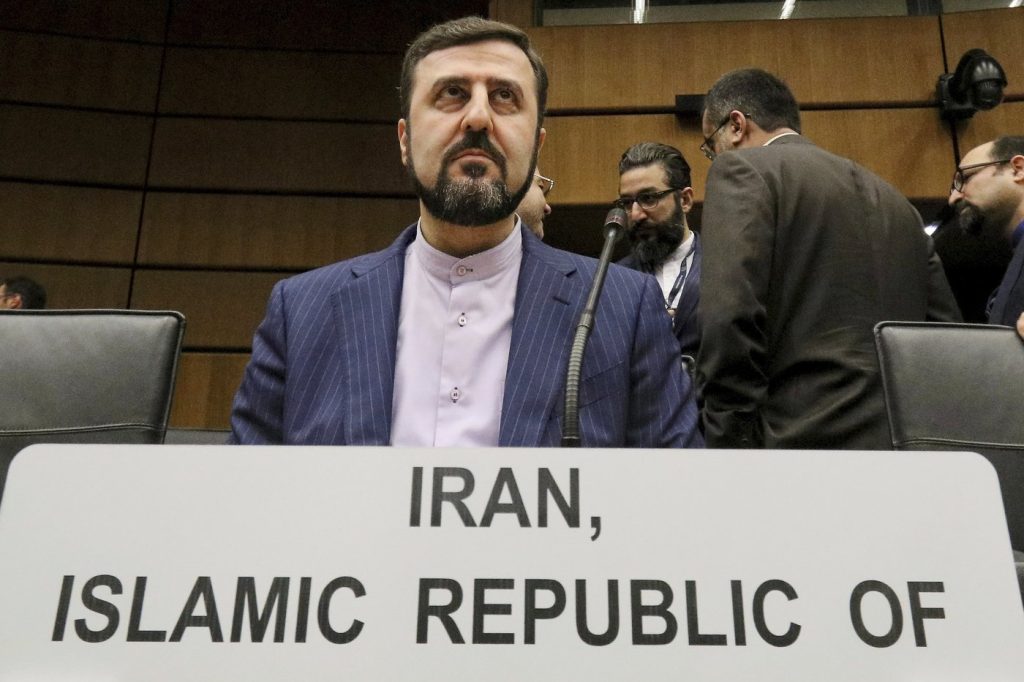On Friday, diplomats from Iran and Europe are set to convene in Istanbul to address the ongoing standstill regarding Tehran's nuclear program. The representatives from Britain, France, and Germany, collectively known as the E3 nations, will meet at the Iranian consulate, marking the first discussion since Iran's 12-day conflict with Israel in June, which involved U.S. bombers targeting nuclear-related sites in Iran.
The discussions will primarily focus on the potential reinstatement of sanctions against Iran. These sanctions were originally lifted in 2015 in exchange for Iran accepting specific restrictions and oversight of its nuclear activities. According to a European diplomat, the snapback mechanism—allowing for the reintroduction of sanctions—"remains on the table." This diplomat, who requested anonymity due to the delicate nature of the talks, cited a possible delay in activating the snapback if Iran demonstrates credible diplomatic engagement, resumes full cooperation with the International Atomic Energy Agency (IAEA), and addresses concerns regarding its enriched uranium stockpile.
European leaders have indicated that sanctions may be reinstated by the end of August should there be insufficient progress in managing Iran's nuclear program. Iran, on the other hand, maintains that the United States, which exited the 2015 nuclear agreement under former President Donald Trump, must restore trust in its role in the negotiations. Deputy Foreign Minister Kazem Gharibabadi emphasized that Iran's engagement depends on several key principles, including the restoration of faith in the U.S. and a rejection of any military agendas being pursued under the guise of diplomatic talks. He underscored Iran's entitlement to enrich uranium to meet its legitimate needs and called for the removal of sanctions.
Tehran has repeatedly issued threats to withdraw from the Nuclear Nonproliferation Treaty if sanctions are reinstated. The upcoming talks will involve Deputy Foreign Minister Majid Takht-e Ravanchi representing Iran. A similar meeting was previously held in Istanbul in May, and while the identities of the participating E3 representatives remain undisclosed, the European Union's deputy foreign policy commissioner is expected to attend.
The U.K., France, and Germany were part of the original 2015 agreement alongside the U.S., Russia, and China. Following the U.S. withdrawal in 2018, Trump argued that the deal lacked sufficient rigor. Notably, neither Russia nor China holds veto power over the reinstatement of sanctions under the original agreement's framework.
In the wake of the Israeli and U.S. strikes that targeted three nuclear sites in Iran, Iranian Foreign Minister Abbas Araghchi accused the E3 of hypocrisy for failing to uphold their obligations while supporting Israel's military actions. This ongoing conflict saw Iran retaliating with missile strikes against Israel and an attack on a U.S. military base in Qatar, casting further uncertainty on future negotiations.
While European officials express a desire to avoid escalating conflicts and remain open to negotiated solutions, they have cautioned that time is of the essence. Although Iran claims to be willing to engage in diplomacy, it recently suspended its cooperation with the IAEA. A growing concern for Western powers was underlined by a May IAEA report indicating that Iran's stockpile of uranium enriched to 60%—a level just below weapons-grade—exceeded 400 kilograms (882 pounds).
In a recent interview on Al Jazeera, Iranian President Masoud Pezeshkian asserted that Iran is prepared for further conflict while reaffirming the country’s commitment to continuing its nuclear program within the bounds of international law. He stressed that Iran has no intentions of pursuing nuclear weapons. Additionally, a spokesperson from Iran’s Atomic Energy Organization stated that the country’s nuclear industry is expected to "grow back and thrive again" after the recent attacks by Israel and the U.S.










